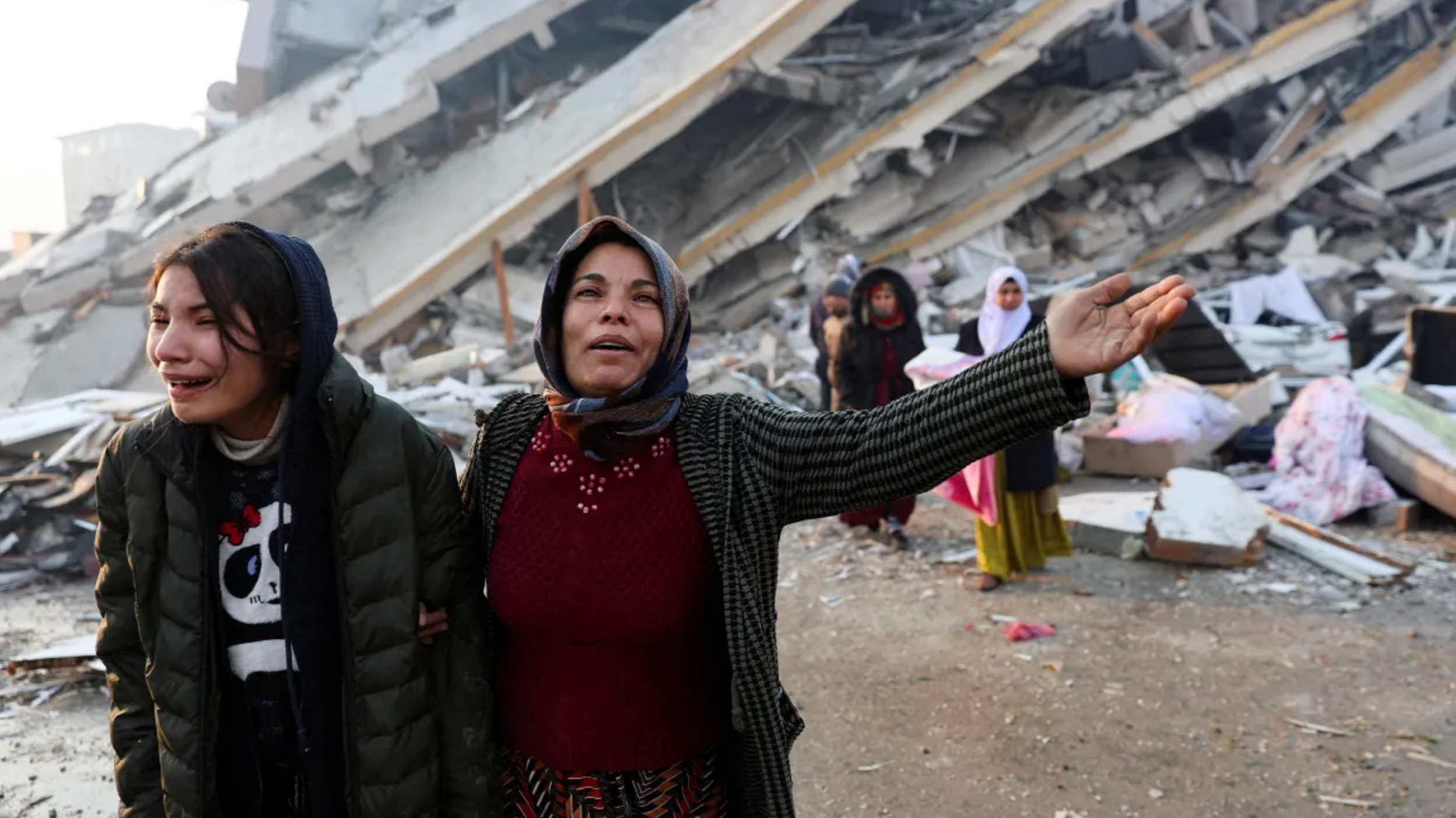
A magnitude 7.8 earthquake struck southern Turkey at dawn on 6 February 2023, leaving a trail of devastation across ten Turkish provinces. Turkey’s emergency management agency confirmed that it was the most severe earthquake in Anatolia in 2000 years, directly affecting more than 13.5 million people in Turkey with a projected death toll of more than 40000 and injuries in the tens of thousands. While the full scale of the damage is still unknown, early estimates put it at $80 billion; and Turkey’s GDP is expected to decline by 1–2 percent this year.
In the days after the quake, a climate of national solidarity unseen for decades prevailed. But earthquakes of this magnitude necessarily have political implications, and many questions have since been raised about the causes of the massive loss of life and buildings and the political implications of the disaster, both domestically and internationally.
Domestically, some in the opposition were quick to politicise the disaster. Kemal Kilicdaroglu, presidential contender and head of the biggest opposition party, the Republican People’s Party (CHP), held President Recep Tayyip Erdogan responsible for the massive losses, saying that his successive governments over the last 20 years had not worked to prepare the country for a major earthquake. While his remarks did not resonate broadly with the public, it is believed that they were largely intended to persuade his partners in the opposition alliance that he is the best candidate to take on Erdogan in the coming presidential elections.
The opposition further seized the chance to blame Erdogan and the Justice and Development Party (AKP) for the collapse of numerous structures built after the earthquake-resistant construction law came into force in 2000. Their collapse demonstrates the lack of strict oversight and corruption in the licensing process; and since the AKP has governed Turkey since 2002, the corruption must be laid at its feet, the opposition said. But the number of post-2000 buildings that collapsed was deliberately exaggerated in the aftermath of the earthquake, and the Ministry of Justice quickly issued orders to arrest and investigate dozens of contractors who worked in the affected provinces.
The earthquake may have implications for the coming presidential and parliamentary elections as well. Prior to the disaster, Erdogan announced that he would call the elections in mid-May, instead of mid-June as previously scheduled. But after 6 February, rumours swirled that he would seek to postpone the election even beyond June, prompting opposition leaders to object that this would be unconstitutional. Clearly, many in the opposition believe that the earthquake will disadvantage Erdogan and his party. Not only will Turks be looking for someone to blame for the tragedy, the disruption and displacement in the affected provinces will likely deny Erdogan and his party of hundreds of thousands of votes in areas known as an AKP stronghold.
Despite this, Erdogan is not likely to attempt to postpone elections beyond June. While his supporters acknowledge that the initial response to the disaster fell short, they believe the government quickly rose to the occasion and that the scale and efficiency of the rescue and relief operation led by the state speaks for itself. For this camp, the people will likely renew their faith in Erdogan, seeing him as the best person to lead the reconstruction effort, especially compared to leading opposition figures.
In terms of foreign policy, the earthquake triggered a quasi-coup in Turkey’s regional and international relations. In the years preceding the quake, Turkey under Erdogan pursued a relatively independent foreign policy that created tensions with fellow NATO members—tensions further fuelled by the West’s stance on issues like Turkish-Greek disputes in the Mediterranean.
But the United States and Europe quickly came to Turkey’s aid, dispatching rescue teams and contributing to relief operations. The European Union called for a donors’ conference in mid-March, which is expected to provide much needed support for the afflicted regions. Greece, with whom Turkey seemed on the cusp of an armed conflict in the run-up to the earthquake, was one of the first countries to send rescue teams, leading the Turkish foreign minister to promise to normalise relations between the two countries in the near future. Even Armenia opened its borders, which had been closed for decades, to allow aid to enter, also contributing to relief efforts.
It will be difficult for Turkey to ignore those who helped it in its hour of need. Regardless of who wins the upcoming elections, the enormous post-earthquake burdens, coming in the midst of an existing fiscal-economic crisis, could restrain Ankara’s foreign policy independence. Post-earthquake Turkey will be more in need of the support of its allies in the West, and its friends in the region, than it was before the earthquake.
*This is a summary of a policy brief originally written in Arabic, available here.